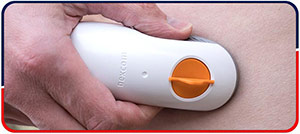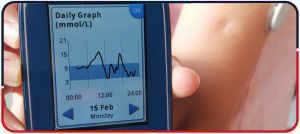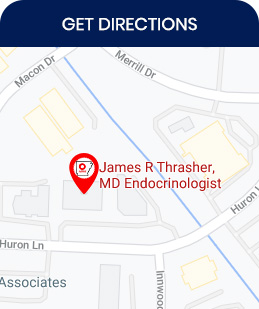Continuous Glucose Monitoring Questions and Answers
Trust the leaders of CGM and insulin pumps in Arkansas for the best technology to manage your diabetes. Come to Arkansas Diabetes and Endocrinology Center, where our healthcare professionals care about your wellbeing. For more information, contact our office to schedule an appointment. We serve patients from Little Rock AR, Conway AR, North Little Rock AR, Pine Bluff AR, Hot Springs AR, Benton AR, Sherwood AR, Russellville AR, Jacksonville AR, Cabot AR, Searcy AR, Bryant AR, Jonesboro AR, Forrest City AR, Magnolia AR, Camden AR, Malvern AR, Batesville AR, Arkadelphia AR, Clarksville AR, Monticello AR, Heber Springs AR, Morrilton AR, Stuttgart AR, Greenbrier AR, Sheridan AR and Vilonia AR.



Table of Contents:
What type of continuous glucose monitoring does Arkansas Diabetes and Endocrinology Center provide?
What is the best treatment for type 1 diabetes?
What types of diabetes can CGM help?
Continuous glucose monitoring, or CGM, is a type of technology that measures the blood sugar levels in diabetes patients. This technology helps improve the lives of those living with diabetes by providing accurate information that allows them and their healthcare provider to better understand their condition.
As the leader of CGM in Arkansas, we continually go above and beyond to ensure our patients receive the best quality care. With many years of ground-level experience, Arkansas Diabetes and Endocrinology Center has the expertise to help you find the right continuous glucose system for your unique condition. The types of CGM devices that we provide include:
– Senseonics Eversense
– Dexcom G6 or G5
– Freestyle Libre
– Medtronic Guardian Connect or Guardian 3
In addition to most commercial insurance plans, Medicare will cover all CGM devices, as of April 2021.
Arkansas Diabetes and Endocrinology Center ensures an individualized approach for every patient, providing one-of-a-kind solutions and custom-tailored care.
The Endocrine Society issued a Clinical Practice Guideline for adults with Type 1 diabetes recommending continuous glucose monitors (CGMs) as the gold standard of care. Although CGMs are primarily used to help manage Type 1 diabetes, the devices can also be useful for people living with Type 2 diabetes. Studies have found that, compared to those who self-monitor blood glucose with periodic fingersticks, people with Type 1 diabetes who use CGMs are able to maintain better control of their blood sugar without increasing the risk of a hypoglycemic episode when blood sugar drops to dangerous levels. Scientific evidence supports the effective use of continuous glucose monitoring technology in individuals with Type 1 diabetes, given that their blood sugar is above the targeted level and that their blood glucose is well managed.
Diabetes is a complex disease that comes in several different forms. CGM is a versatile treatment that can benefit the following types of diabetes:
Type 1 Diabetes — This type of diabetes is an autoimmune disease in which the immune system mistakenly targets and destroys the cells in the body that produce insulin. Insulin is a hormone needed for controlling glucose. The rate of type 1 diabetes is increasing worldwide, with the greatest increase occurring in children under the age of 5.
Type 2 Diabetes — The second type of diabetes is a metabolic disorder resulting from the body’s inability to produce adequate amounts of insulin or the inability to properly use insulin. Type 2 diabetes is the most common type of diabetes, affecting the lives of millions of people across the world. One of the primary risk factors for type 2 diabetes is being overweight or obese. The more fatty tissue that exists in the body, the more resistant the body’s cells become to insulin. However, being overweight is not the only risk factor for developing type 2 diabetes. In addition to being overweight, body fat storages located in the abdomen increase the risk of developing type 2 diabetes, especially when compared to the fat storages located in the hips and thighs. Living an inactive lifestyle also increases the risk of developing type 2 diabetes, with less activity increasing the risk more.
If you or someone you love is struggling with the management of diabetes, come to Arkansas Diabetes and Endocrinology Center to find out if you qualify for continuous glucose monitoring. Our team of kind and compassionate healthcare professionals are dedicated to providing the highest level of care to all of our patients. Call us today to book an appointment. We look forward to serving you!







